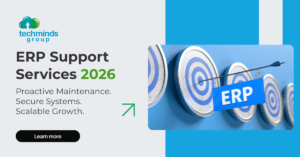In today’s fast-paced digital world, the food and beverage industry faces numerous challenges — from managing perishable inventory to meeting strict regulatory standards. To stay competitive, businesses need the right tools to streamline operations, enhance efficiency, and ensure compliance.
A food and beverage ERP system is one such tool, offering tailored solutions to meet specific business needs. Whether you’re a distributor, manufacturer, or processor, implementing the best ERP for food manufacturing or ERP for food distribution can transform your operations.
In this blog, we’ll explore the top 7 ERP benefits for the food industry and why this technology is becoming an essential part of modern business success.
1. Enhances Compliance and Regulatory Management
Food and beverage ERP systems help businesses maintain regulatory compliance by automating workflows, tracking inventory data, and storing detailed records. They provide real-time monitoring of safety information, simplify audit processes, and generate comprehensive compliance reports. By embedding ERP into daily operations, businesses minimize the risk of penalties and protect their brand reputation.
2. Enables End-to-End Traceability
Traceability is critical in the food industry to meet market demands and ensure customer satisfaction. An ERP for food distribution offers complete visibility — tracking ingredients from sourcing to final delivery. Advanced features, such as IoT integration, allow quick identification of expired products and enable targeted recalls. This transparency not only meets customer expectations but also strengthens trust in your brand.
3. Optimizes Inventory Management
Managing perishable items requires precision. The best ERP for food manufacturing offers real-time tracking of stock levels, expiration dates, and demand patterns. Automated inventory control and forecasting help prevent waste, avoid stockouts, and optimize resource allocation — ensuring fresh products reach customers while reducing spoilage and overstock.
4. Improves Operational Efficiency
A food and beverage ERP solution integrates production, procurement, sales, and logistics into one centralized platform. This reduces manual work, eliminates data silos, and boosts cross-department collaboration. From order processing to billing, ERP automation saves time, enabling employees to focus on strategic tasks and adapt quickly to market changes.
5. Drives Data-Driven Decision Making
Access to real-time, accurate data is a game-changer. ERP systems consolidate insights from production, sales, and supply chain performance. Using KPIs and interactive dashboards, businesses can identify trends, optimize workflows, and make informed decisions that keep them ahead of competitors.
6. Reduces Operational Costs
By streamlining processes and improving resource management, food and beverage ERP systems significantly cut operational costs. Automated inventory management minimizes waste, while production scheduling prevents overproduction. Financial management modules reduce manual errors and eliminate duplicate systems, ensuring optimal cost efficiency.
7. Improves Customer Experience
Customer satisfaction is the cornerstone of success. An ERP for food distribution can integrate with CRM modules to track customer preferences, interactions, and order histories. This enables personalized service, consistent product quality, and on-time delivery — all of which build stronger customer relationships and brand loyalty.
Final Thoughts
From ensuring compliance to optimizing inventory and enhancing customer experience, the benefits of ERP for the food industry are undeniable. In today’s competitive market, food and beverage ERP is not just a choice — it’s a strategic necessity. If you want to future-proof your business and gain a competitive edge, investing in the right ERP solution is the way forward.
📩 Ready to transform your food business with ERP? Contact Techminds today to explore the best ERP for food manufacturing and distribution.







